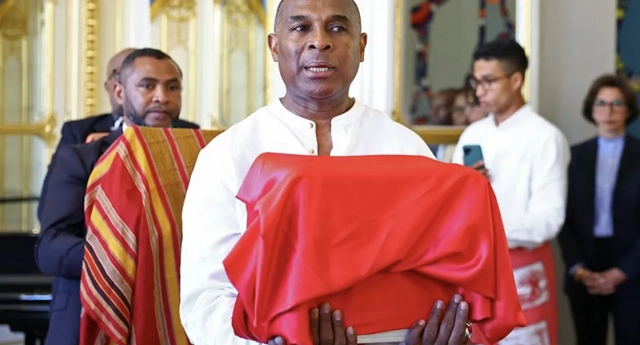France has formally returned the skull of King Toera, a 19th-century monarch of Madagascar’s Sakalava people, nearly 130 years after he was killed during the colonial conquest of his kingdom.
The solemn handover ceremony was held at the French Culture Ministry in Paris, where Culture Minister Rachida Dati described the transfer as an act of justice. “These skulls entered the national collections in circumstances that clearly violated human dignity and in a context of colonial violence,” she said.
King Toera was killed in August 1897 when French forces moved to consolidate colonial control over the Menabé kingdom in western Madagascar. After his army was massacred, he was decapitated and his head was shipped to France, where it was placed in the archives of the Museum of Natural History in Paris. Alongside his skull, the remains of two members of his court were also returned.
The move marks the first use of a new French law designed to simplify the restitution of human remains taken during colonial rule. While DNA tests conducted years ago could not conclusively identify the remains as Toera’s, a traditional Sakalava spirit medium confirmed their authenticity, a process accepted by Malagasy authorities.
Madagascar’s Culture Minister Volamiranty Donna Mara, who attended the handover, described the gesture as profoundly symbolic. “Their absence has been, for more than a century… an open wound in the heart of our island,” she said, underlining the importance of restoring dignity to ancestors taken away under colonial violence.
France has previously returned remains, most notably those of Sarah Baartman, a South African woman who was paraded in Europe under the degrading nickname “Hottentot Venus” before her body was repatriated in 2012. However, the return of King Toera’s skull is the first under the new legislation, which is expected to pave the way for similar restitutions.
The Museum of Natural History in Paris alone holds more than 20,000 human remains collected from around the world, often under the guise of science but in contexts deeply tied to colonial exploitation.
For Madagascar, the return of King Toera’s remains represents not just closure to a painful chapter of history, but also a recognition of the cultural and spiritual heritage denied for generations.

